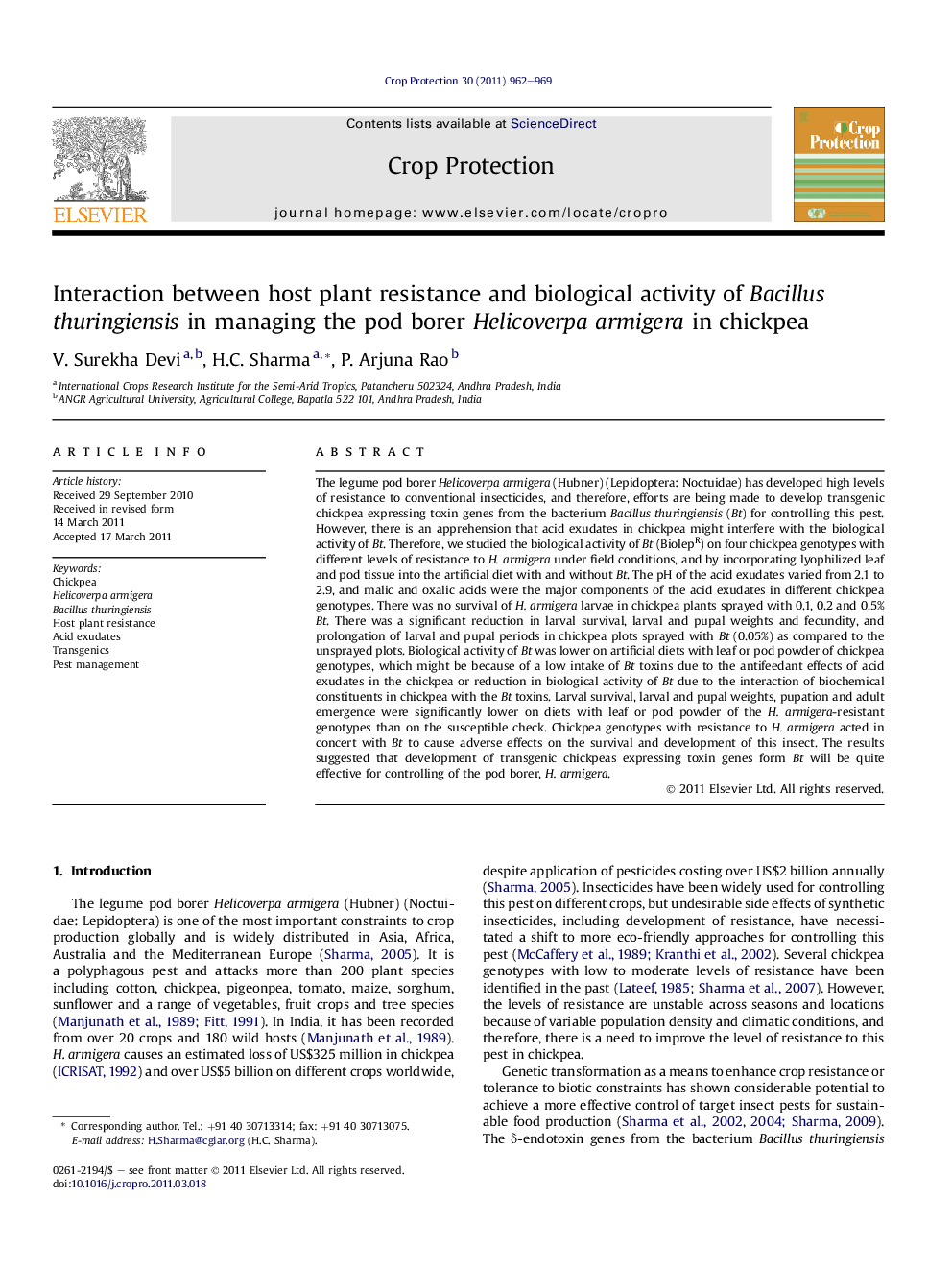| کد مقاله | کد نشریه | سال انتشار | مقاله انگلیسی | نسخه تمام متن |
|---|---|---|---|---|
| 4506756 | 1321328 | 2011 | 8 صفحه PDF | دانلود رایگان |

The legume pod borer Helicoverpa armigera (Hubner) (Lepidoptera: Noctuidae) has developed high levels of resistance to conventional insecticides, and therefore, efforts are being made to develop transgenic chickpea expressing toxin genes from the bacterium Bacillus thuringiensis (Bt) for controlling this pest. However, there is an apprehension that acid exudates in chickpea might interfere with the biological activity of Bt. Therefore, we studied the biological activity of Bt (BiolepR) on four chickpea genotypes with different levels of resistance to H. armigera under field conditions, and by incorporating lyophilized leaf and pod tissue into the artificial diet with and without Bt. The pH of the acid exudates varied from 2.1 to 2.9, and malic and oxalic acids were the major components of the acid exudates in different chickpea genotypes. There was no survival of H. armigera larvae in chickpea plants sprayed with 0.1, 0.2 and 0.5% Bt. There was a significant reduction in larval survival, larval and pupal weights and fecundity, and prolongation of larval and pupal periods in chickpea plots sprayed with Bt (0.05%) as compared to the unsprayed plots. Biological activity of Bt was lower on artificial diets with leaf or pod powder of chickpea genotypes, which might be because of a low intake of Bt toxins due to the antifeedant effects of acid exudates in the chickpea or reduction in biological activity of Bt due to the interaction of biochemical constituents in chickpea with the Bt toxins. Larval survival, larval and pupal weights, pupation and adult emergence were significantly lower on diets with leaf or pod powder of the H. armigera-resistant genotypes than on the susceptible check. Chickpea genotypes with resistance to H. armigera acted in concert with Bt to cause adverse effects on the survival and development of this insect. The results suggested that development of transgenic chickpeas expressing toxin genes form Bt will be quite effective for controlling of the pod borer, H. armigera.
► Amounts of oxalic acid were greater in the Helicoverpa-resistant lines than in the susceptible check.
► Biological activity of Bt was lower in diets with chickpea leaf/pod powder than in the control diet.
► Biochemical components of chickpea possibly reduced the biological activity of Bt.
► Survival and fecundity were significantly reduced on resistant lines than on the susceptible ones.
► Host plant resistance to Helicoverpa in chickpea does not affect the biological activity of Bt.
Journal: Crop Protection - Volume 30, Issue 8, August 2011, Pages 962–969